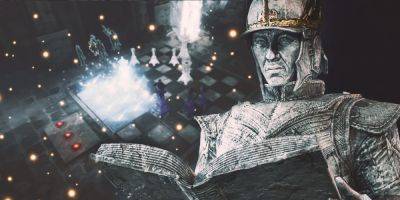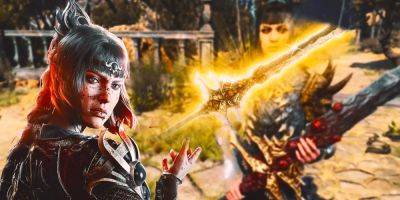How Saving Throws Work In Baldur’s Gate 3
Saving Throws are a common defensive mechanic in . Unlike Attack Rolls, spells and moves that utilize Saving Throws technically always land, and it is up to the target to endure. Some builds might want to focus highly on their Saving Throws to prevent various ill effects.
Offensive-minded characters will also want to know how Saving Throws functions but in reverse. You may instead make your magic more potent to resist, including basic beginner spells in . Or find out which Saving Throw is an enemy’s weakest — most creatures only have one or two strong Saving Throws, while the others can be exploited.
Saving Throws are used to overcome a set Difficulty Class — often abbreviated in-game simply as “DC.” Hazards, like traps and poison, have a value pre-determined by Larian throughout ’s campaign. Humanoid characters have a passive DC applied to their actions, determined by this formula:
The used Ability Score depends on whether a character learned the attack via class or race. For example, the default Dark Urge is a Sorcerer in that uses Charisma to cast magic. But, when they use their Dragonborn Breath, it factors in Constitution. Monsters without a class tend to use an arbitrary score, mainly favoring Strength or Charisma.
Ability Score
Class or Race
Strength
Battlemaster Fighter (If higher than Dexterity), Monk (If higher than Dexterity), Wildheart Barbarian
Dexterity
Battlemaster Fighter (If higher than Strength), Monk (If higher than Strength)
Constitution
Wild Magic Barbarian, Dragonborn
Intelligence
Wizard, Arcane Trickster Rogue, Eldritch Knight Fighter, High Elf, High Half-Elf
Wisdom
Cleric, Druid, Ranger, Way of the Four Elements Monk (Spells only)
Charisma
Bard, Sorcerer, Paladin, Warlock, Drow, Half Drow, Tiefling
Illithid Powers uses the above stat from the class last invested in, even if it isn’t the overall highest. For example, a fifth-level Bard that takes one level of Druid will now use Wisdom to determine the Difficulty Class of their latest







